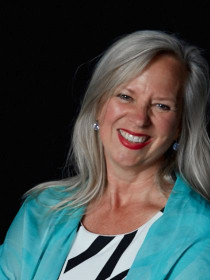
Diane M Tober
Connect with Diane
About Diane
Tober is a medical anthropologist whose research focuses on gender and sexuality, the commodification of the body, science and technology studies, bioethics, social justice, and policy. With funding from the National Science Foundation, she has been conducting research on egg donation in the United States and Spain, with a focus on egg donors' experiences in different regulatory/market settings. She has conducted field research in Iran, Spain, and the United States.
Contributions
In the News
Publications
Explores how Iran's family-planning program is differentially perceived and utilized among low-income Iranian and Afghan refugee families in rural and urban locations. Particular attention is given to how different interpretations of Islam may or may not influence reproductive health-related behaviors and how cultural factors influence reproductive strategies.
Investigates Islamic discourse, perceptions of life, death and the body, and the case of organ sale/donation in Iran, drawing on fundamental religious and ethical debates within the country, as well as interviews and observations in an Iranian transplant center. Iran is the only official Shi’a Islamic country, with Ithna-Ashari, or Twelver Shi’ism, as the dominant form. For various reasons, in part due to the interpretive approach to jurisprudence in Ithna-Ashari Shi’ism, but also due to other aspects of Iranian culture, the Iranian approach to medical science and technology is dramatically different from that in most other Islamic countries.
Examines how Afghans who access Iran's health services interpret health and family planning education in the face of Iran's repatriation efforts and increased social tension. Further, investigates divergent views toward Afghan repatriation and notions of home, self, and identity. Ultimately, this paper addresses the various borders—physical, national, ethnic, religious, gendered, urban/rural—and how these borders can be redefined through the refugee experience, leaving hope for the future.
Examines how perceptions of what semen is thought to contain affect its value as a marketable product. Explores how donor altruism, intelligence and ethnicity traits thought to be transmitted in sperm are perceived and transacted among representatives of the sperm banking industry, as well as among women who purchase semen for insemination and show how the linkages between the reproductive industry and the sex industry further heighten the commodity-quality of semen donation. Argues that the emphasis placed on altruism is an attempt to redefine the commodity quality of semen as gift, in order to imbue it with higher emotional and moral value.